GTA REALTORS® Release Monthly Resale Housing Figures For February 2020
TORONTO, MARCH 4, 2020 – In line with the forecast contained in the Toronto Regional Real Estate Board’s recently released Market Year in Review and Outlook Report, TRREB President Michael Collins announced a very strong year-over-year sales and price growth in February 2020.
Greater Toronto Area REALTORS® reported 7,256 residential transactions through TRREB’s MLS® System in February 2020, representing a 45.6 per cent increase compared to a 10-year sales low in February 2019. However, February 2020 sales were still below the 2017 record result. Year-over-year sales growth, for the GTA as a whole, was strongest for ground-oriented home types.
After preliminary seasonal adjustment, February 2020 sales also exhibited positive momentum, up by 14.8 per cent compared to January 2020.
“Sales growth will be strong this year. TRREB’s forecast published in its Market Year in Review and Outlook Report on February 6, is calling for 97,000 sales in 2020. However, the annual pace of sales growth experienced in February will likely not be sustained throughout the year, because we will be making comparisons to much stronger sales results reported after the first quarter of 2019,” said Mr. Collins.
New listings amounted to 10,613 in February 2020, a 7.9 per cent increase compared to February 2019. This moderate annual growth rate was much smaller than that reported for sales, which means market conditions tightened considerably over the past year.
“Sales growth well in excess of listings growth is once again the norm. This is because the temporary effects of the 2017 Ontario Fair Housing Plan and the OSFI mortgage stress test have largely worn off. However, while these policies were running their course, the well-publicized housing supply problem in the GTA continued unabated. All levels of government have acknowledged the supply problem, but we need to very quickly move from policy briefs to shovels in the ground,” said TRREB CEO John DiMichele.
As market conditions tightened over the past year, competition between buyers has clearly increased. This resulted in a further acceleration in year-over-year price growth in February. The MLS® Home Price Index Composite Benchmark was up by 10.2 per cent. The average selling price for all home types combined was up by 16.7 per cent to $910,290. Double-digit average price growth was experienced for most major market segments, including detached houses and condominium apartments.
“TRREB’s current average price forecast is for 10 per cent price growth to $900,000 in 2020. While this outlook represents a very robust pace of growth, it is possible that further tightening in the detached market segment could push the overall average selling price above TRREB’s baseline scenario. This could unfold if sales growth continues to outstrip new listing growth to the degree it has so far in 2020,” said Jason Mercer, TRREB’s Chief Market Analyst.

Source: Toronto Real Estate Board



















